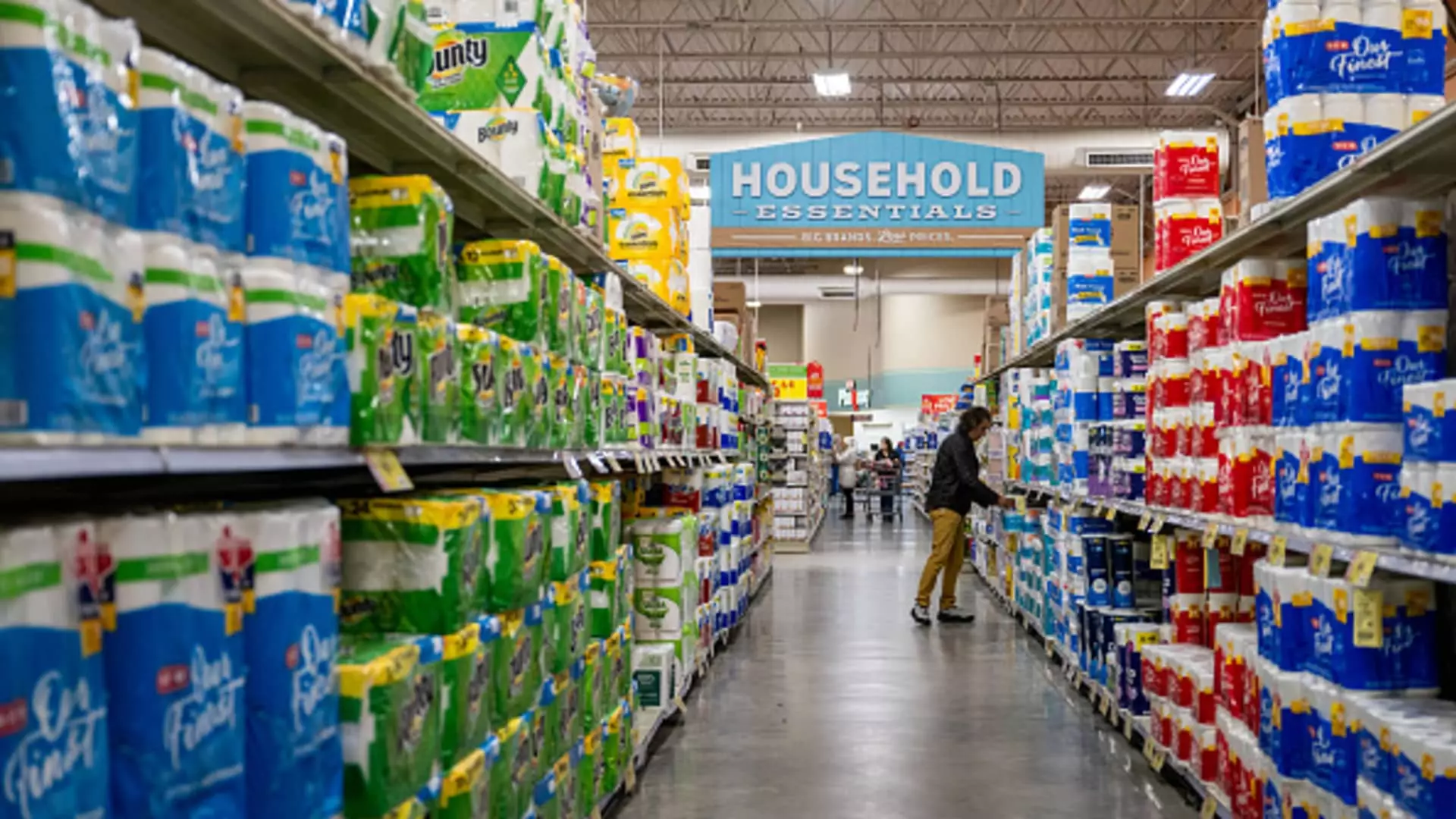In an alarming turn of events, the recent implementation of new tariffs by the Trump administration is set to negatively impact everyday shopping for countless Americans. As the government attempts to import less and bolster domestic job markets, economists and consumers alike are beginning to feel the pinch. The strategy, ostensibly wrapped in the appealing banner of “America First,” overlooks a critical reality—many staples we rely on are not produced within our borders due to geographical and climatic limitations.
Imagine walking down the grocery aisle only to find that the cost of your morning coffee, beloved bananas, and essential household products like toilet paper have surged. The Consumer Brands Association (CBA) has raised significant concerns about how these tariffs will not merely replace one source of supply with another, but may actually drive prices up across the board. If we truly wish to marry the goals of economic independence and consumer affordability, this approach is profoundly misguided.
Essential Imports Under Threat
Consider coffee, for example, a cornerstone of American culture and daily productivity. The U.S. ranks as the top global importer of coffee beans, and the latest tariffs impose a serious threat to both prices and availability. The stark truth is that the climate across vast portions of the United States is simply not conducive to coffee cultivation. This leads to reliance on international suppliers from places like Colombia and Brazil. Alongside coffee, essential ingredients such as tropical fruits and cocoa face similar threats under the new tariff regime. The irony is rich—through these tariffs, we are essentially punishing our own taste buds and daily habits.
Moreover, when we look at the repercussions on spices, the effect is devastating. The CBA has illuminated that Madagascar, a region responsible for supplying a whopping 75% of the U.S. vanilla imports, will soon face an astronomical 47% tariff. Given that vanilla is already one of the most expensive spices in the world, this excessive tariff could make your favorite vanilla-flavored treats unaffordable for many.
A Ripple Effect on Household Necessities
Household staples are also in jeopardy. Items like toilet paper, baby diapers, personal care lotions, and shampoos could witness price hikes as manufacturers grapple with increased production costs because of tariffs on essential materials such as wood pulp and palm oil. The American dependence on palm oil from Indonesia, now subject to a staggering 32% duty, exemplifies how these tariffs reach into corners of our lives that we often take for granted.
Those who are engaged in the consumer goods sector may attempt to offset these costs through price adjustments, but this behavior sends a clear signal: the burden is being passed down to the customer. The services and products that families often consider standard will become luxuries for many living paycheck to paycheck.
The Economic Irony: Consumer Staples Flourish Amidst Downturn
It’s fascinating, albeit troubling, to watch the stock market’s reaction to this tariff news. Consumer staples companies experienced a rise in their stock values despite the looming price increases many households will face. Investors, understandably jittery about more volatile sectors, sought refuge in the relative safety of consumer staples. This market response uniquely highlights the disconnection between Wall Street and Main Street; while certain sectors might see growth, everyday consumers will bear the burden of increased costs.
In an economic system where fiscal responsibility is critical, the tariffs paint a troubling picture for American consumers. We are witnessing a convoluted prioritization of domestic job growth at the expense of consumer choice and affordability. If we blindly support policies that lead to primitive protectionism, we risk strangling those very jobs we aim to protect.
A Call for Thoughtful Policy
The latest tariffs remind us that good intentions can have unintended consequences. If we are to ensure that American businesses can compete while the consumer remains protected, a balanced approach must be adopted. Opening channels for exemptions on critical imports and fostering international partnerships could yield a more sustainable future. As it stands, a reckless approach to tariffs could serve as a painful lesson in economic mismanagement for the current administration, eroding public support at the grassroots level.


Leave a Reply